Are you looking to spice up your marketing strategy this season? A well-crafted seasonal campaign can capture attention and boost engagement, making it the perfect opportunity to connect with your audience. By tapping into seasonal themes and emotions, you can create memorable experiences that resonate and drive results. Curious to learn how to design a successful campaign proposal? Let's dive in!

Target Audience Identification
Understanding target audiences is essential for developing effective seasonal campaigns, especially in diverse markets such as the United States and Europe. Seasonal events like Christmas, Black Friday, and back-to-school periods attract various demographics with distinct preferences. For instance, holiday shoppers aged 25-45 often seek convenience and value, while families with children prioritize safety and fun during summer activities. Identifying specific segments, such as tech enthusiasts looking for gadgets during Cyber Monday or parents seeking educational products in August, enables tailored marketing strategies. Location-based preferences, such as urban versus rural consumers, also play a significant role in audience behavior, influencing both product offerings and promotional channels.
Campaign Goals and Objectives
A seasonal campaign proposal aims to enhance brand engagement during key periods such as holidays or seasonal events. Objectives include increasing customer traffic by 20% during the campaign period, improving conversion rates by 15%, and boosting social media engagement by 30% through targeted promotions and advertisements. A successful campaign often leverages season-specific themes, such as festive decorations or seasonal product offerings, creating a sense of urgency among consumers. Additionally, incorporating metrics from previous campaigns can provide insights into effective strategies, ensuring that the goals align with overall business objectives while maximizing return on investment.
Message and Value Proposition
A seasonal campaign proposal aims to effectively communicate a brand's message and value proposition during specific times of the year, such as holidays or seasonal events. The campaign focuses on engaging target audiences by leveraging unique themes, relevant cultural events, and tailored offers. For instance, a winter holiday campaign might emphasize themes of warmth and togetherness, presenting products like cozy sweaters or festive decorations. The value proposition emphasizes the enjoyment and convenience these products bring, enticing customers with limited-time discounts or exclusive items. Through strategic marketing channels, such as social media platforms or email newsletters, the campaign seeks to capture attention, evoke emotions, and drive conversions, ultimately enhancing customer loyalty and brand awareness during this competitive seasonal landscape.
Budget and Resource Allocation
Seasonal campaigns require careful budget and resource allocation to maximize effectiveness and reach the target audience. A proposed budget of $50,000 can encompass various aspects, such as advertising through digital platforms like Google Ads and social media channels like Facebook, Instagram, and TikTok, where audience engagement peaks during specific seasons, Halloween or Black Friday, attracting millions of users. Resource allocation can include graphic design professionals for creating eye-catching promotional materials, costing approximately $5,000, and hiring influencers with followings of 100,000 or more for authentic outreach, estimated at $10,000. Additionally, allocating funds toward promotional events, such as pop-up shops in high-traffic locations like New York City or Los Angeles, can enhance brand visibility. Monitoring tools for social media analytics and customer engagement tracking can be included in the budget, costing around $2,000 to evaluate campaign success effectively.
Performance Metrics and Evaluation
A comprehensive seasonal campaign proposal should focus on specific performance metrics and evaluation methods to gauge success. Key performance indicators (KPIs) include conversion rates, customer engagement rates, and return on investment (ROI) percentages. For instance, a target conversion rate of 5% can benchmark the campaign's effectiveness in driving sales. Social media engagement, measured by likes, shares, and comments, allows insight into audience interaction and brand resonance. Additionally, utilizing customer satisfaction scores, gathered through post-purchase surveys, can assess overall experience and inform future strategies. Regular monitoring and analysis during the campaign cycle will enable agile adjustments to optimize performance and resource allocation. Effective evaluation is essential for determining the overall impact and informing subsequent seasonal campaigns.

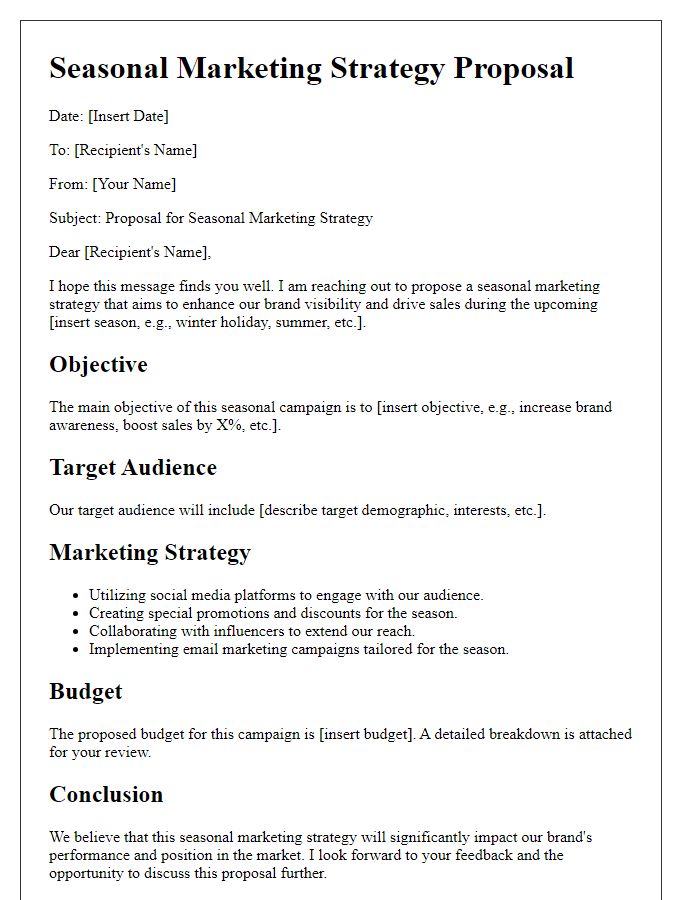
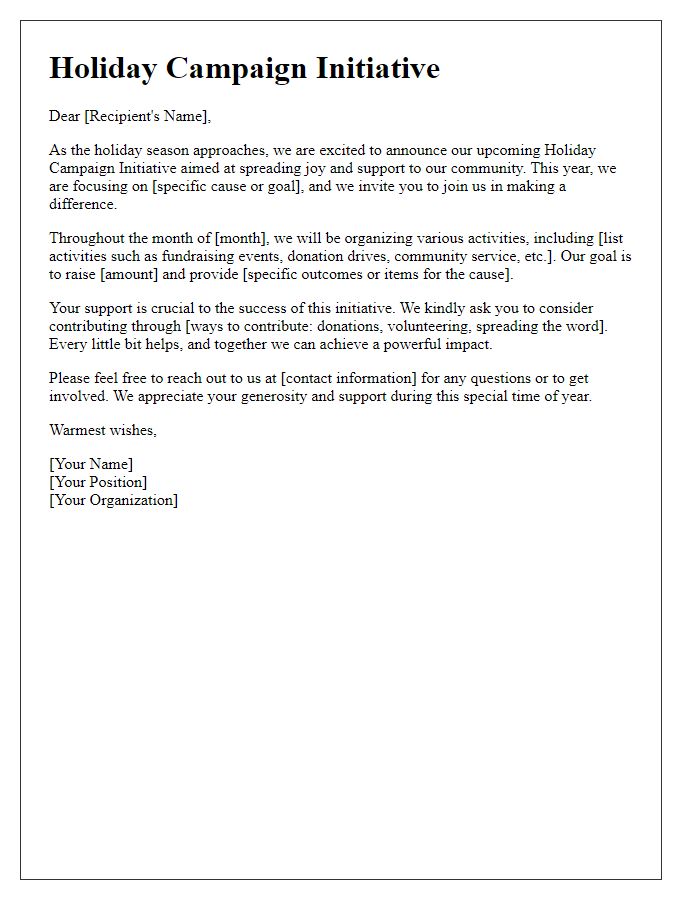
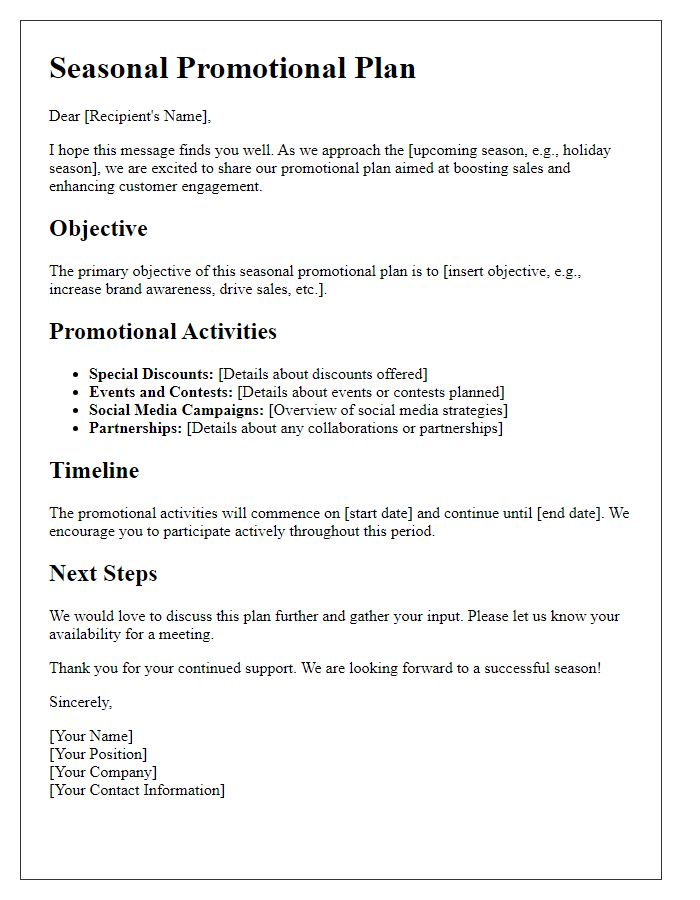
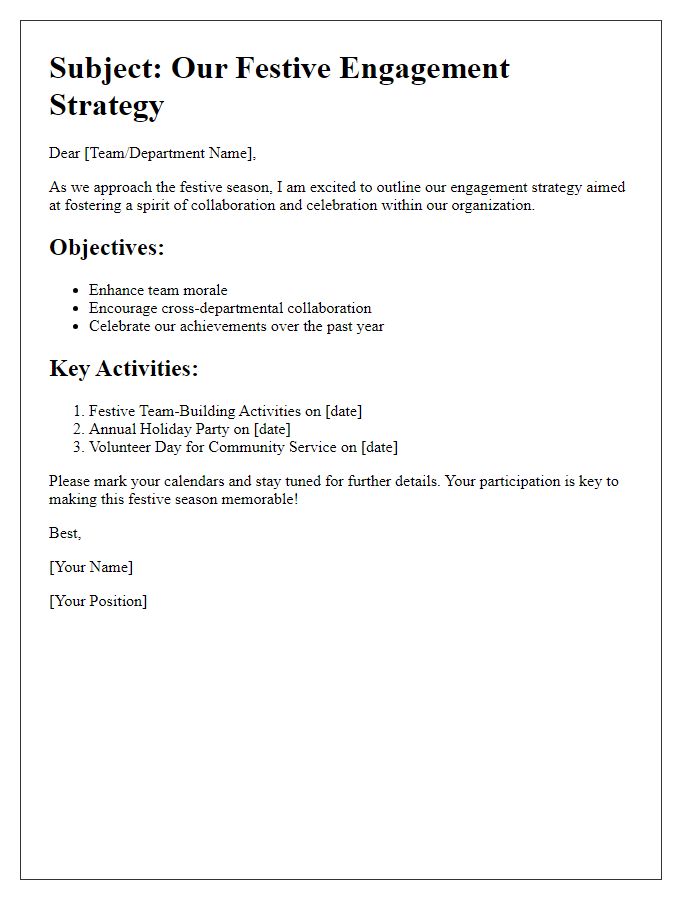
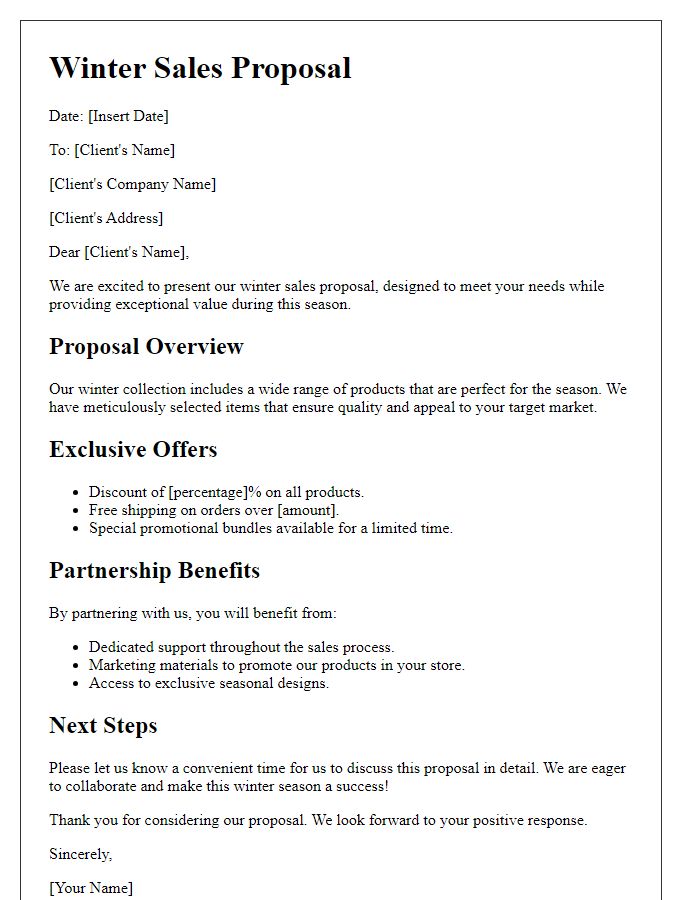
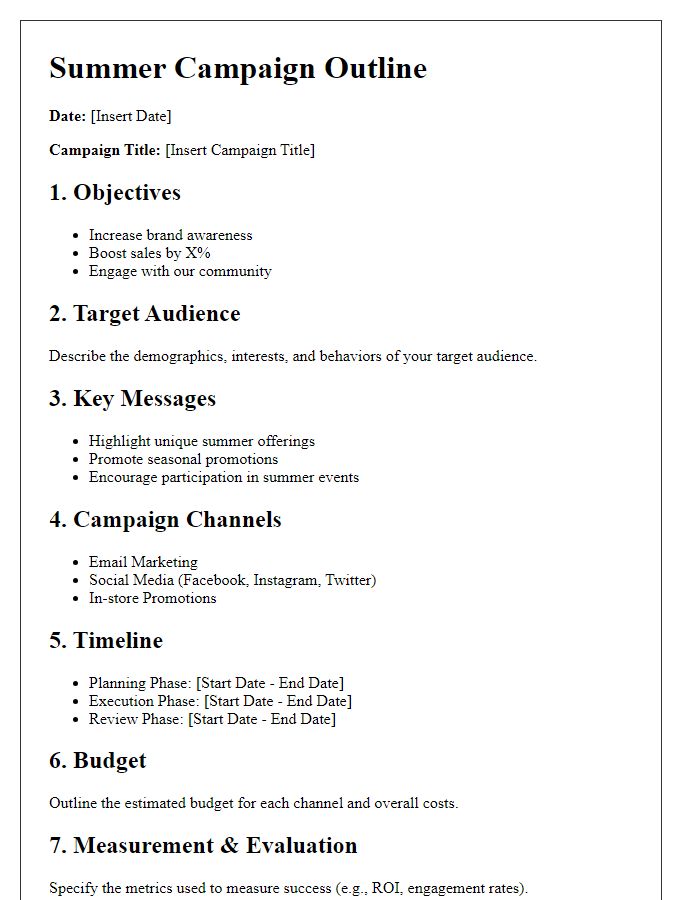
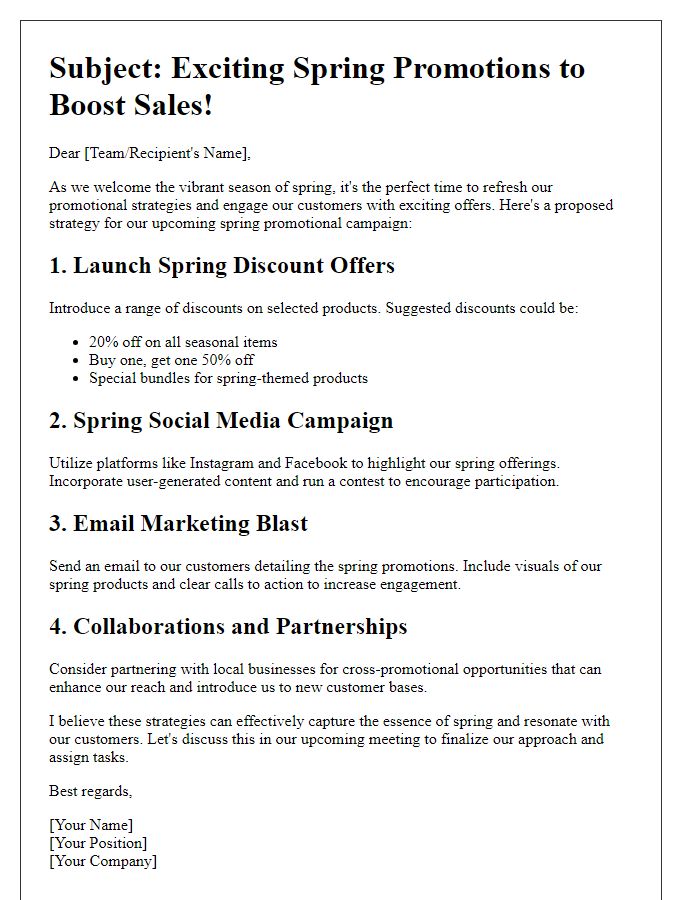
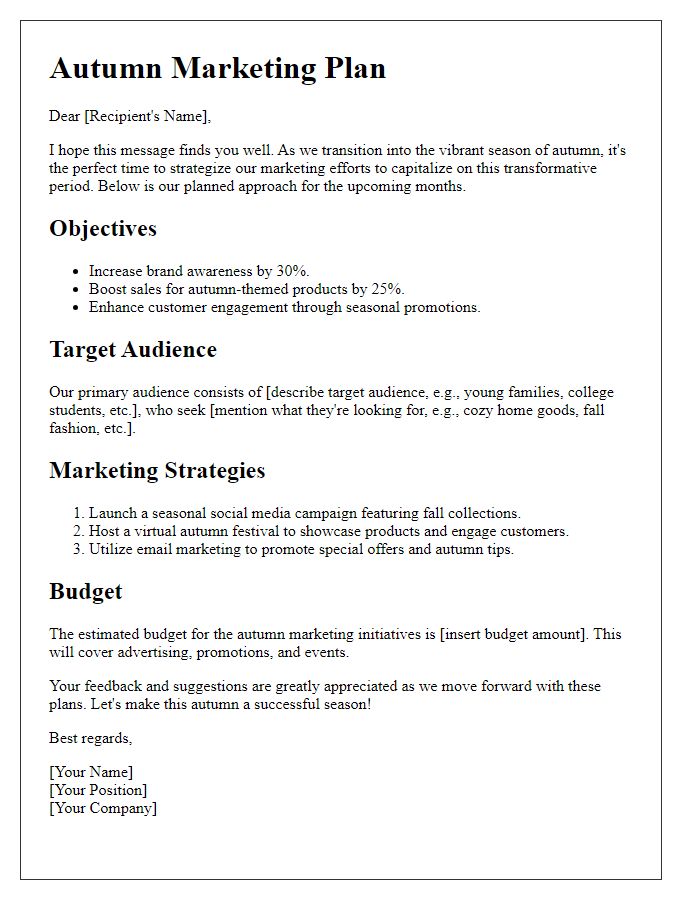
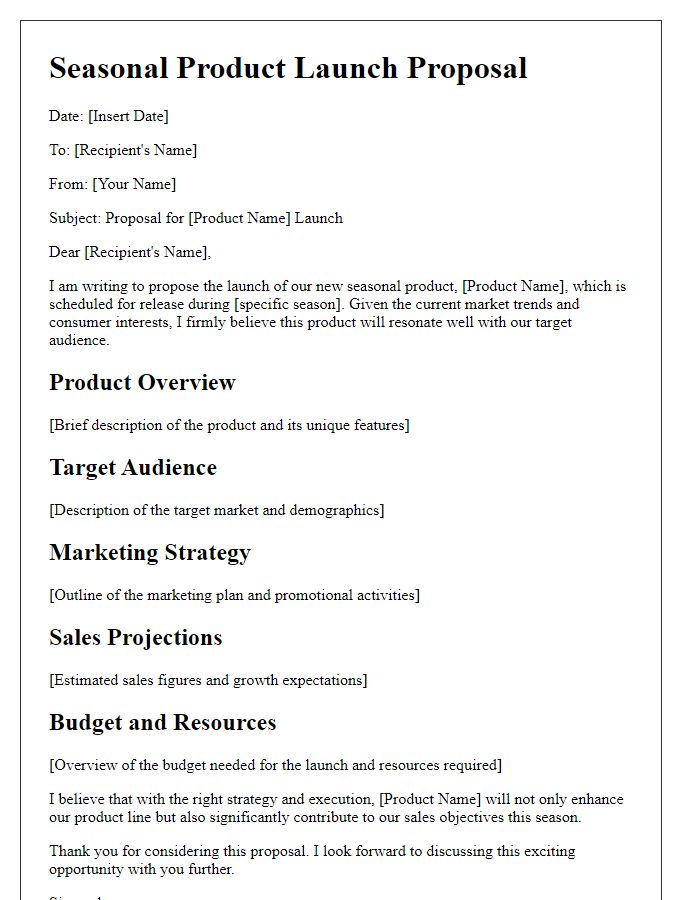
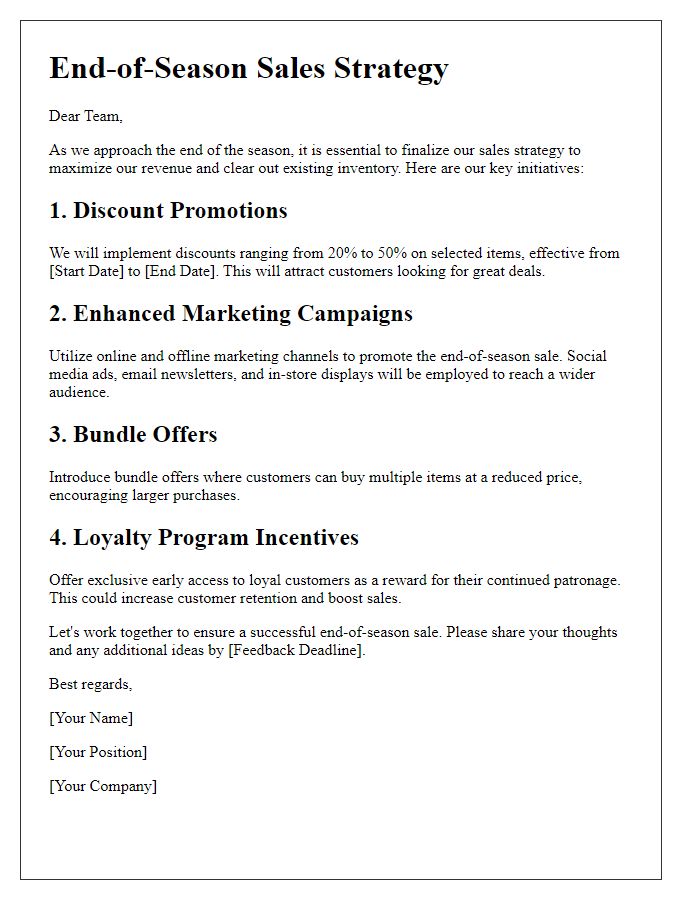


Comments